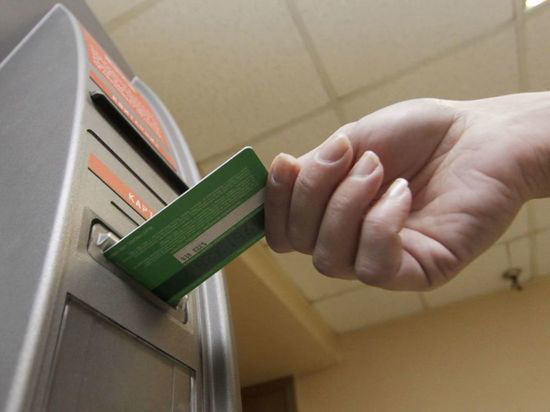“The EU states receiving raw materials from Russia will be under attack”
Moscow faces additional difficulties in paying for gas supplies abroad. Poland and the Baltic countries called on the European Union to disconnect Gazprombank from the SWIFT system as part of the 11th package of sanctions. And the point here is not that another Russian state-owned bank will fall under sanctions. If this measure is implemented, the long-term consequences for the export of Russian gas may turn out to be very unpleasant — after all, it is through this bank that payments are made for the supply of domestic «blue fuel» abroad.

«Given the bank's role in the Russian establishment's scheme to embezzle public money, as well as its use by the Kremlin to advance political interests, disconnecting Gazprombank from SWIFT has a priority and symbolic value,» the initiators said in a joint statement. Through Gazprombank, the third largest in the Russian Federation, all international payments for Russian gas are made.
This decision was made by the Russian government last spring, after our country, in response to Western sanctions, switched to trading gas for rubles. In 2022, the EU purchased 61 billion cubic meters of pipeline gas and 22 billion cubic meters of LNG from Moscow, EUobserver notes. That is, supplies collapsed by 46% (and production — by 20%). This year they are unlikely to exceed 70 billion cubic meters, compared to 140 billion in pre-sanction 2021.
At the same time, according to Gazprom, the company has set a new record for daily deliveries to China, and the total volume of exports to this country in the very near future will amount to 48 billion cubic meters. And taking into account the transit gas pipeline through the territory of Mongolia — almost 100 billion. The emphasis is also being placed on ensuring uninterrupted supplies to Turkey via the Blue Stream and the first line of the Turkish Stream, as well as on gas supply to the southern Balkans and Hungary along the second line Turkish Stream, says Aleksey Grivach, Deputy Director General of the National Energy Security Fund.
Gazprombank is the main financial institution in Russia that makes payments for gas supplied to foreign counterparties, says Artem Deev, head of the analytical department at AMarkets. — That is, the Europeans themselves (at least those who still receive raw materials from the Russian Federation) are absolutely not interested in initiating sanctions against the bank. It should not be forgotten that such proposals from Poland and the Baltic states are usually ignored by the European Commission as openly populist and deliberately counterproductive. With a high degree of probability, now the outcome will be the same, otherwise it will not be the initiators of the restrictions that will be hit, but other EU states that receive raw materials from Russia via the Turkish Stream — Bulgaria. Hungary, Serbia.
Indeed, the proposed measure is fraught with additional problems for Gazprombank, to which European companies transfer dollars even under contracts with Gazprom. The credit institution exchanges this currency for rubles on the stock exchange, sending them then to Gazprom. This is how the mechanism of cross-border settlements for supplied gas works today, says Igor Yushkov, an expert at the Financial University under the Government of the Russian Federation. According to him, the bank's disconnection from SWIFT does not mean that it will no longer be possible to pay for Russian raw materials in dollars and euros. It's just that the process of transferring bank data will be delayed, and the costs for all participants in these operations will increase. Buyers will be able to redirect payments through alternative systems such as SPFS (Financial Messaging System launched by the Central Bank in 2014) or China's CIPS. So there will be no catastrophe, gas exports will not stop.
“It's clear why the initiative comes from Poland and the Baltic countries,” says Yushkov. — Warsaw does not interact with Gazprom in any way, since it was one of the first in the EU to refuse to switch to the ruble scheme in settlements. As for Latvia, Lithuania and Estonia, they have not officially terminated contracts with the supplier, they are just now trying to minimize purchases of Russian gas by continuing to pay for individual consignments through Gazprombank. Their political logic prevails over economic expediency.”
Exactly the same states proposed disconnecting Gazprombank from SWIFT in September 2022, when the 8th package of EU sanctions was being discussed, reminds Alexey Fedorov, TeleTrade analyst. Then their idea was naturally not supported, since an energy crisis was raging in Europe, and the heating season was ahead. Has the situation changed so much that the sanctions against Gazprombank have become a fait accompli, and not just at the level of disconnection from SWIFT, but at the level of freezing assets and blocking accounts? After all, then the Russian bank will not be able to interact with European counterparties at all.
“On the one hand, the threat remains: gas prices in Europe have dropped markedly, there are enough reserves in storage facilities,” Fedorov argues. – At the same time, over the past few decades, the EU has not yet had the experience of going through the period of preparation for the heating season and the simultaneous use of gas for current needs (electricity generation, industry) without supplies from Russia. Accordingly, from the point of view of energy security, it is not advisable for them to create such barriers themselves. In addition, Gazprombank has other options for exchanging information with European banks.”


